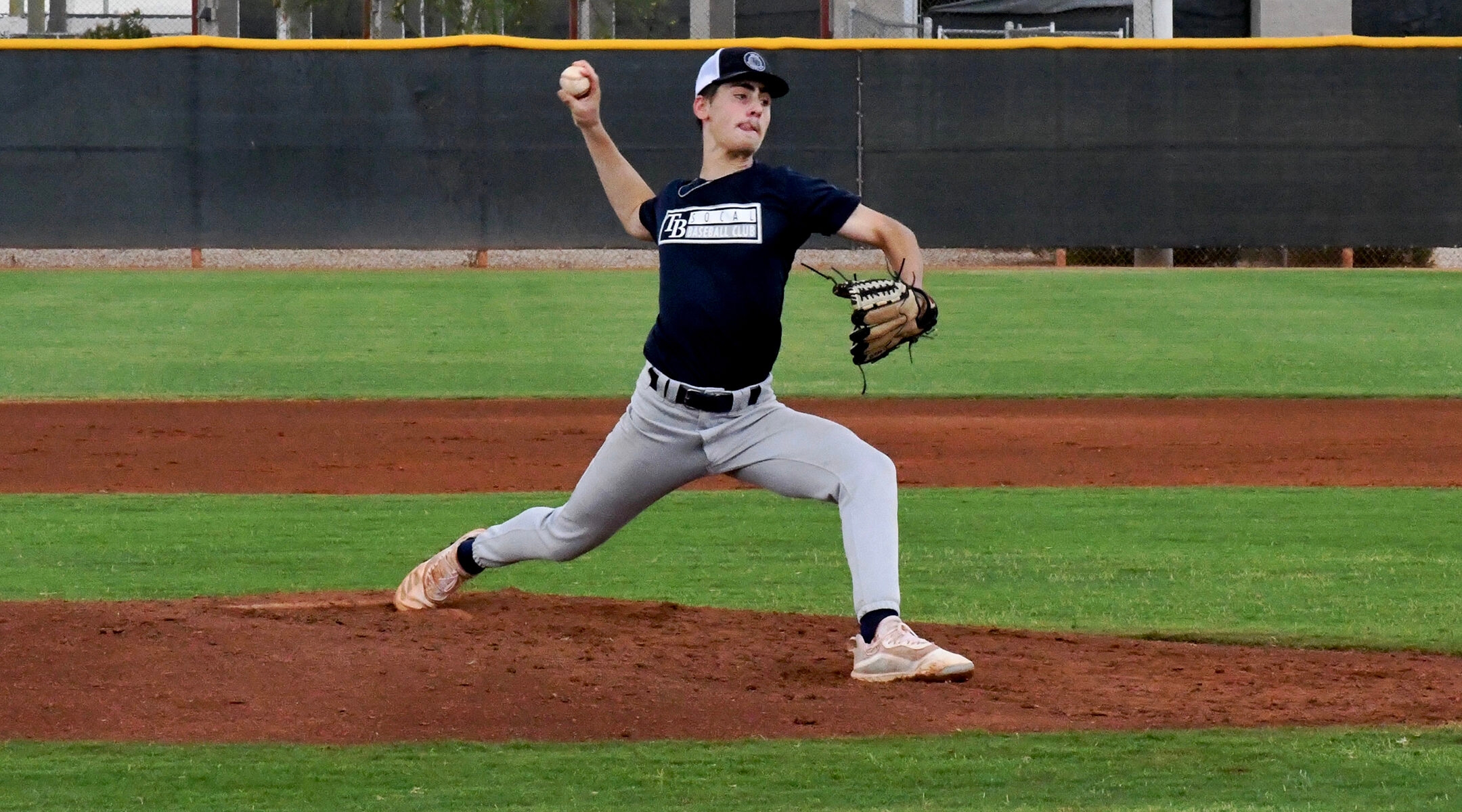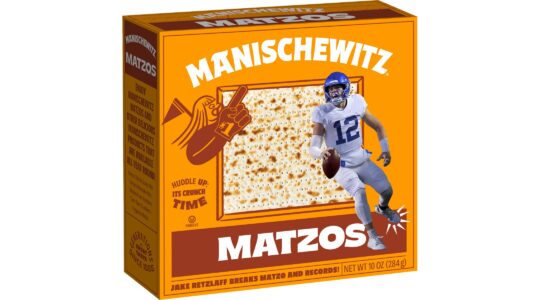(JTA) — Some Jewish baseball fans know the name Elie Kligman, even though he’s just a freshman in college. That’s because last year he became one of the first two Orthodox Jewish players ever picked in a Major League Baseball draft.
But virtually no one knows about Kligman’s younger brother — who has the potential to be as good or better than his sibling.
Ari Kligman is now a high school senior, and while it doesn’t appear he will be drafted this year, he is beginning to attract attention from a number of Division I colleges. (His brother Elie chose to refine his skills at Wake Forest University, after being drafted No. 593 overall by the Washington Nationals.)
While Elie is primarily a catcher, Ari, who doesn’t turn 18 until the fall, is sizing up to be a pitching prospect. He can currently hit up to 89 miles an hour on the radar gun, and by next year, he’s hoping to top 90, to go along with a devastating curveball that could turn the heads of major league scouts. He joined his brother at the advanced Wake Forest pitching lab in the fall, to analyze his mechanics and make them more efficient.
A main takeaway: gain some muscle weight. Most MLB pitchers these days are over six feet tall. Ari is now 6-foot-2, 190 pounds — after gaining 20 pounds over the past year.
“They say mass is gas. The more you weigh, the harder you throw generally,” Ari told the Jewish Telegraphic Agency.
Want more sports stories? Sign up for The Jewish Sport Report newsletter.
SUBSCRIBE HEREAri and Elie are very close, born just 20 months apart. Their sibling rivalry is less hierarchical than some families.
“It’s very much a picking on each other kind of relationship,” Ari said. “That’s how I think we motivate each other. We make fun of each other. [But] we hope each other does really well.”
In their offseasons, Ari pitches to Elie, and they dream of becoming only the second major league Jewish sibling pitcher-catcher battery — in 1960, the Dodgers’ Larry Sherry pitched to Norm Sherry. (Since 1900, there have been four other sets of Jewish brothers in the majors besides the Sherrys, most in the earlier part of the 20th century: Sydney and Andy Cohen; Erskine and Sam Mayer; Lou and Harry Rosenberg; and Ike and Harry Danning.)
But that won’t happen on Shabbat. “It’s not the way me and Elie do it. We’re not going to play on Shabbos,” Ari said.
While the other Orthodox MLB draftee Jacob Steinmetz says he would play on Shabbat — after walking to a stadium and not using electricity — the Kligmans are firm in their decisions not to play from Friday sundown to Saturday sundown.
Elie dresses for games on Shabbat and cheers on his teammates without playing. Ironically, his first at-bat this season came as a pinch hitter, just before sundown, on Friday March 4. His father Marc Kligman — a former college player in his own right, now a lawyer and sports agent who has represented a number of baseball players, most famously the former All-Star catcher Carlos Ruiz — happened to be there.

The Kligman family, from left to right: Elie, Marc and Ari. (Courtesy of Marc Kligman)
“People thought he actually got his at-bat on Shabbos. It was close. I already put my phone away. I walked back in and they’re like, ‘look who’s at bat.’ And I’m like, ‘oh gosh,’ but, it’s still not officially Shabbos, it’s in that 18 minute window,” Marc Kligman told JTA. “They were ready if he got on base to have a pinch runner.”
Elie has a support system at Wake Forest. A local Rabbi held a very late seder for him on the first night of Passover.
“They had a 7 o’clock game against Clemson. He was at the game, and then Elie and one of his Jewish teammates walked back to the rabbi’s house and basically made a seder at like 10 o’clock,” Marc Kligman said.
While Elie has seen very little playing time as a freshman — Wake’s senior starting catcher plays the vast majority of the games — his time to start could come as early as next season.
Some day though, maybe by 2027, Ari says he believes that both he and his brother will be playing major league baseball.
“If you have a doubt, then it’s just not going to happen at all. It’s already a slim chance. You can’t have a doubt,” Ari said.
JTA has documented Jewish history in real-time for over a century. Keep our journalism strong by joining us in supporting independent, award-winning reporting.






